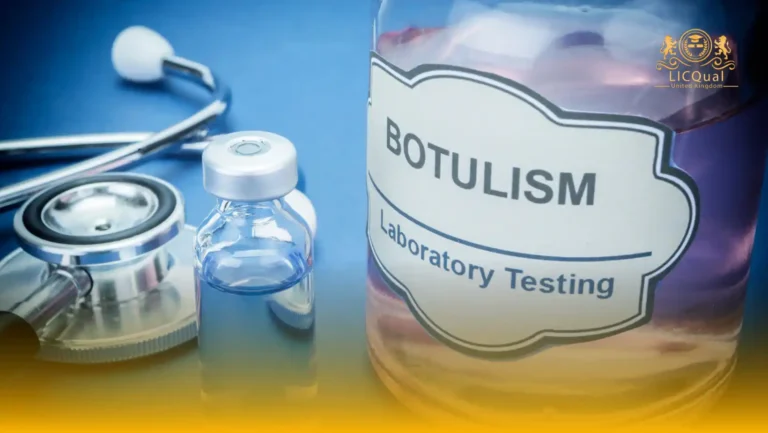The LICQual Level 7 Postgraduate Diploma in Specialty Pharmacy (PgD Specialty Pharmacy) is an advanced qualification designed for healthcare professionals seeking to specialise in the management of complex and high-cost medications. This programme equips learners with the knowledge, clinical expertise, and practical skills required to optimise therapy, ensure patient safety, and improve outcomes in specialty pharmacy practice.
This postgraduate diploma is ideal for pharmacists, clinical practitioners, and healthcare professionals who wish to enhance their career prospects, expand their professional knowledge, and actively engage in Continuing Professional Development (CPD). Learners will gain advanced understanding of specialty medications, therapeutic protocols, patient assessment, adherence management, and clinical decision-making, enabling them to contribute effectively to multidisciplinary teams and deliver high-quality, patient-centred care.
Centres delivering the LICQual Level 7 Postgraduate Diploma in Specialty Pharmacy are required to maintain rigorous standards of education and training. This includes employing competent and qualified staff, providing access to up-to-date learning materials, and ensuring all necessary facilities and resources are available to support learner success. By meeting these requirements, centres guarantee learners receive comprehensive instruction and practical experience essential for professional growth in specialty pharmacy.
By completing this diploma, learners will strengthen their clinical expertise, develop specialist skills in managing complex therapies, and position themselves as leaders in specialty pharmacy practice. This qualification empowers learners to enhance patient outcomes, ensure medication safety, and confidently progress to senior or specialist roles within healthcare services.
Course Overview
Qualification Title
LICQual Level 7 Postgraduate Diploma in Specialty Pharmacy (PgD Specialty Pharmacy)
Total Units
6
Total Credits
120
GLH
600
Qualification #
LICQ2201235
Qualification Specification
To enroll in the LICQual Level 7 Postgraduate Diploma in Specialty Pharmacy (PgD Specialty Pharmacy) , applicants must meet the following criteria:
|
Qualification# |
Unit Title |
Credits |
GLH |
|---|---|---|---|
|
LICQ2201235-1 |
Advanced Principles of Specialty Pharmacotherapy |
20 |
100 |
|
LICQ2201235-2 |
Clinical Assessment and Medication Management |
20 |
100 |
|
LICQ2201235-3 |
Patient Safety, Risk Management and Regulatory Compliance |
20 |
100 |
|
LICQ2201235-4 |
Evidence-Based Practice and Research in Specialty Pharmacy |
20 |
100 |
|
LICQ2201235-5 |
Ethical, Legal, and Professional Considerations |
20 |
100 |
|
LICQ2201235-6 |
Advanced Therapeutic Interventions and Specialist Management |
20 |
100 |
By the end of this course, learners will be able to:
Unit 1: Advanced Principles of Specialty Pharmacotherapy
- Analyse pharmacology and pathophysiology relevant to specialty medications
- Evaluate pharmacokinetics and pharmacodynamics in complex therapy management
- Review evidence-based guidelines for biologics, high-cost therapies, and orphan drugs
- Assess risks and benefits of polypharmacy and complex medication regimens
Unit 2: Clinical Assessment and Medication Management
- Conduct comprehensive assessments of patients requiring specialty therapies
- Perform medication reviews to optimise therapy and minimise adverse effects
- Integrate comorbidities, organ function, and patient-specific factors into treatment plans
- Apply principles of personalised medicine and shared decision-making
Unit 3: Patient Safety, Risk Management and Regulatory Compliance
- Identify and manage adverse drug reactions and medication errors in specialty pharmacy
- Implement strategies for safe prescribing, dispensing, and monitoring of complex therapies
- Apply regulatory frameworks and compliance standards for high-cost medications
- Promote patient safety, adherence, and quality assurance
Unit 4: Evidence-Based Practice and Research in Specialty Pharmacy
- Critically appraise research, clinical trials, and real-world evidence in specialty pharmacy
- Apply research methods to improve clinical decision-making
- Develop interventions to enhance patient outcomes
- Use data to support policy, protocol development, and evidence-based practice
Unit 5: Ethical, Legal, and Professional Considerations
- Examine ethical dilemmas in specialty pharmacy, including access to high-cost medicines
- Understand legal responsibilities in prescribing, dispensing, and counselling
- Analyse patient consent, confidentiality, and safeguarding issues
- Promote professional standards and reflective practice in complex therapy management
Unit 6: Advanced Therapeutic Interventions and Specialist Management
- Design individualised treatment plans for patients on complex or high-cost therapies
- Evaluate specialist interventions and monitoring strategies for high-risk patients
- Implement multidisciplinary approaches in specialty pharmacy care
- Monitor, review, and optimise therapy to improve clinical outcomes
The LICQual Level 7 Postgraduate Diploma in Specialty Pharmacy (PgD Specialty Pharmacy) is designed for pharmacists and healthcare professionals who want to specialize in advanced pharmaceutical care and complex therapies. This internationally recognized postgraduate diploma in specialty pharmacy provides global accreditation, career‑boosting recognition, and practical expertise. Whether you are working in hospitals, research, or community practice, this Level 7 pharmacy qualification equips you with the skills to excel in specialty pharmacy.
1. Practicing Pharmacists
- Pharmacists aiming to specialize in specialty pharmacy practice
- Professionals seeking advanced postgraduate qualifications for career progression
- Those interested in managing complex and high‑cost therapies
- Individuals looking for internationally recognized pharmacy diplomas
- Pharmacists wanting to enhance their clinical decision‑making skills
2. Hospital and Clinical Pharmacists
- Pharmacists working in hospitals managing specialty medications
- Professionals involved in multidisciplinary healthcare teams
- Those responsible for prescribing and monitoring advanced therapies
- Clinicians seeking postgraduate training in specialty pharmacy practice
- Hospital pharmacists aiming for global recognition with a Level 7 qualification
3. Community and Outpatient Pharmacists
- Pharmacists delivering care in outpatient clinics and specialty care centers
- Professionals supporting patients with chronic and rare conditions
- Those interested in medication adherence and patient counseling
- Community pharmacists seeking postgraduate training in specialty pharmacy
- Individuals aiming to expand their role in patient‑centered care
4. Public Health and Regulatory Professionals
- Healthcare workers addressing specialty pharmacy in public health programs
- Specialists in regulatory affairs and pharmaceutical compliance
- Professionals seeking postgraduate training in pharmacy and healthcare integration
- Those aiming to strengthen global health initiatives through specialty pharmacy expertise
- Public health officers requiring advanced specialty pharmacy knowledge
5. Academic and Research Scholars
- Researchers focusing on specialty pharmacy and pharmaceutical sciences
- Academics seeking postgraduate diplomas for teaching and curriculum development
- Scholars aiming to publish in specialty pharmacy journals
- Professionals interested in evidence‑based pharmaceutical interventions
- Those pursuing advanced qualifications to support research funding and grants
6. Early‑Career Pharmacists and Graduates
- Recent graduates seeking specialization in specialty pharmacy
- Young professionals aiming to boost employability with postgraduate diplomas
- Those wanting to stand out in competitive healthcare job markets
- Graduates interested in advanced pharmacy training aligned with global needs
- Early‑career pharmacists seeking structured career pathways
7. Healthcare Policy Makers and Administrators
- Professionals shaping specialty pharmacy policies and frameworks
- Administrators overseeing pharmacy education and healthcare programs
- Leaders aiming to integrate pharmacy expertise into healthcare strategies
- Policy makers requiring advanced knowledge of specialty pharmacy
- Healthcare managers seeking internationally recognized postgraduate qualifications
Centres delivering the LICQual Level 7 Postgraduate Diploma in Specialty Pharmacy must have qualified staff, up-to-date learning materials, practical facilities, and all necessary resources to ensure high-quality training and learner success.
- Centres must employ competent and qualified teaching staff with expertise in specialty pharmacy
- Access to current textbooks, clinical guidelines, and digital learning resources
- Availability of practical facilities or simulated environments to support applied learning
- Systems to provide learner support, mentoring, and academic feedback
- Compliance with international standards and regulatory requirements for postgraduate pharmacy education
- Access to reliable internet, online platforms, and research databases for study and assignments
- Capability to deliver evidence-based, high-quality training ensuring learners achieve all outcomes
- Procedures to monitor learner progress and assessment effectively
- Commitment to Continuing Professional Development (CPD) opportunities for staff and learners
- Adequate administrative and academic resources to manage enrolment, assessment, and certification
Assessment and Verification
All units within this qualification are subject to internal assessment by the approved centre and external verification by LICQual. The qualification follows a criterion-referenced assessment approach, ensuring that learners meet all specified learning outcomes.
To achieve a ‘Pass’ in any unit, learners must provide valid, sufficient, and authentic evidence demonstrating their attainment of all learning outcomes and compliance with the prescribed assessment criteria. The Assessor is responsible for evaluating the evidence and determining whether the learner has successfully met the required standards.
Assessors must maintain a clear and comprehensive audit trail, documenting the basis for their assessment decisions to ensure transparency, consistency, and compliance with quality assurance requirements.







